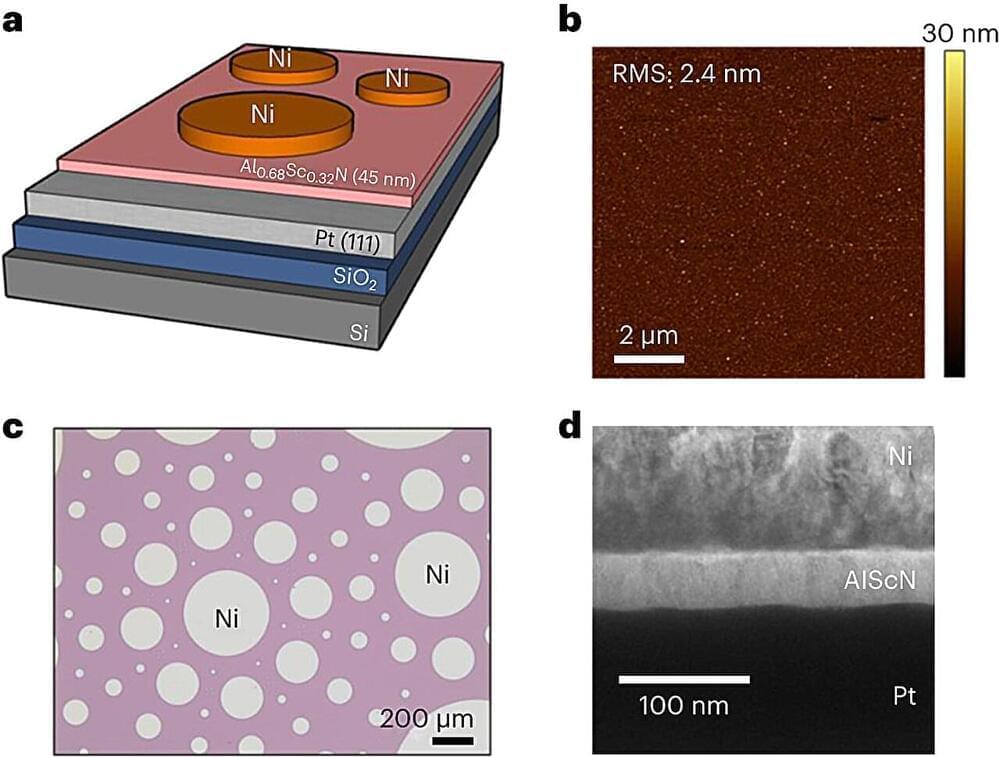A smartphone shutting down on a sweltering day is an all-too-common annoyance that may accompany a trip to the beach on a sunny afternoon. Electronic memory within these devices isn’t built to handle extreme heat.
As temperatures climb, the electrons that store data become unstable and begin to escape, leading to device failure and loss of information. But what if gadgets could withstand not just a hot summer day but the searing conditions of a jet engine or the harsh surface of Venus?
In a paper published in the journal Nature Electronics, Deep Jariwala and Roy Olsson of the University of Pennsylvania and their teams at the School of Engineering and Applied Science demonstrated memory technology capable of enduring temperatures as high as 600° Celsius—more than twice the tolerance of any commercial drives on the market—and these characteristics were maintained for more than 60 hours, indicating exceptional stability and reliability.
